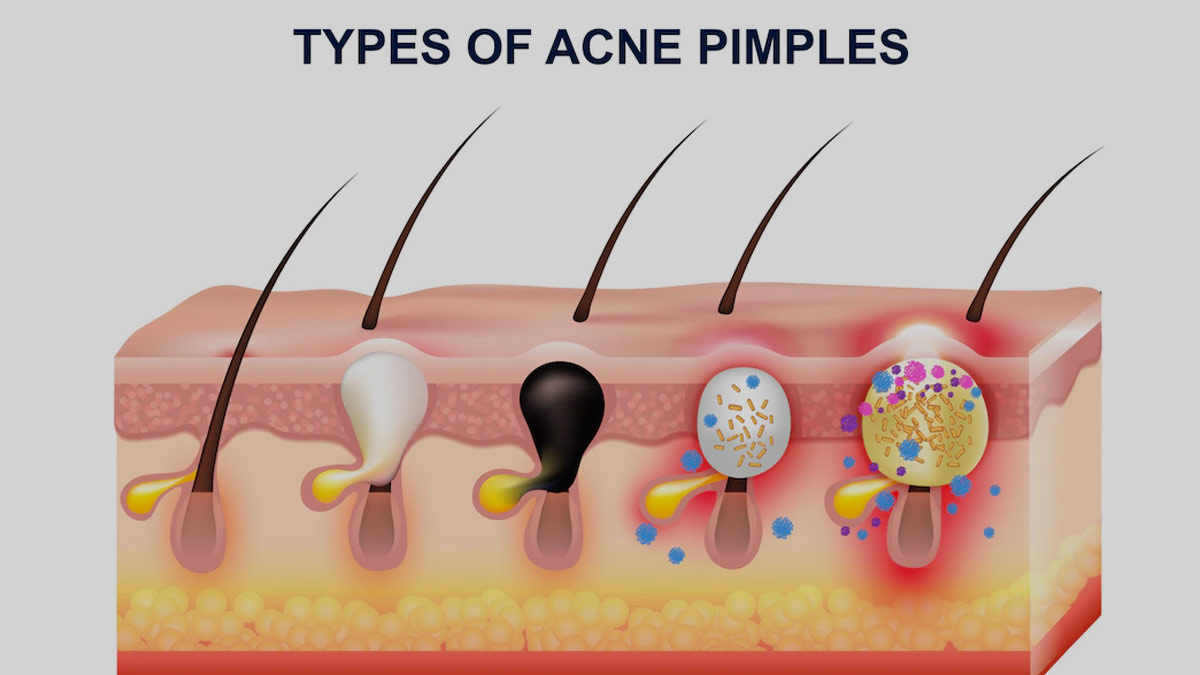
Summer can be a challenging season for those who suffer from acne. The combination of heat, humidity, and increased oil production can lead to more frequent breakouts. However, with the right skincare routine and lifestyle adjustments, you can manage and reduce acne. Here are six effective ways to get rid of acne this summer.
Table of Content:-
1. Keep Your Skin Clean
One of the most important steps in managing acne is keeping your skin clean. During the summer, your skin tends to produce more oil and sweat, which can clog pores and lead to breakouts.

Cleanse Twice Daily
Use a gentle, non-comedogenic cleanser to wash your face twice a day – once in the morning and once before bed. Look for cleansers that contain salicylic acid or benzoyl peroxide, which can help reduce acne.
Also read: Fractional CO2 Laser Treatment For Acne Scarring: Expert Explains The Procedure, Benefits, And Risk Factors
Avoid Over-Washing
While it's important to cleanse your skin, avoid over-washing as it can strip your skin of its natural oils, causing it to produce even more oil to compensate.
Shower After Sweating
Make sure to shower after sweating heavily, such as after a workout or spending time outdoors, to remove sweat and bacteria from your skin.
2. Use Oil-Free and Non-Comedogenic Products
During summer, switch to oil-free and non-comedogenic skincare and makeup products to prevent clogged pores.
Moisturisers: Choose a lightweight, oil-free moisturiser that won't clog your pores. Even if your skin feels oily, moisturising is crucial to maintain a healthy skin barrier.
Sunscreens: Use a non-comedogenic sunscreen to protect your skin from harmful UV rays without causing breakouts. Gel-based or mineral sunscreens are good options for acne-prone skin. Opt for oil-free makeup and always remove it thoroughly before bed to prevent pore congestion.
3. Stay Hydrated
Drinking plenty of water is essential for maintaining healthy skin and can help reduce acne. Aim for at least 8 glasses of water a day to keep your skin hydrated from the inside out. Incorporate hydrating foods like cucumbers, watermelon, and oranges into your diet to boost your overall hydration levels.

4. Avoid Touching Your Face
Touching your face can transfer bacteria, dirt, and oils from your hands to your face, leading to breakouts.Wash your hands regularly and avoid touching your face throughout the day. Try to minimize habits like resting your face in your hands or picking at pimples, which can spread bacteria and worsen acne.
5. Exfoliate Regularly
Exfoliating helps to remove dead skin cells and prevent them from clogging your pores, but it's important to do it correctly. Choose gentle, non-abrasive exfoliants that are suitable for acne-prone skin. Chemical exfoliants containing alpha hydroxy acids (AHAs) or beta hydroxy acids (BHAs) can be effective. Exfoliate 1-2 times a week to prevent over-exfoliation, which can irritate your skin and make acne worse.
6. Maintain a Healthy Diet
Your diet plays a significant role in the health of your skin. Eating the right foods can help reduce acne. Foods with a high glycemic index, such as white bread, sugary snacks, and soft drinks, can cause spikes in blood sugar, leading to increased oil production and acne.
Incorporate Anti-Inflammatory Foods: Foods rich in omega-3 fatty acids, like salmon, walnuts, and flaxseeds, can help reduce inflammation and improve skin health.
Also Read: What is Tretinoin? Here’s How It Protects Your Skin Against Acne
Eat More Fruits and Vegetables: Consuming a variety of fruits and vegetables provides your body with essential vitamins and antioxidants that promote clear skin.
Additional Tips
Oils and bacteria from your skin and hair can accumulate on pillowcases, so change them regularly to prevent transferring these to your face.
Keep Hair Clean: Wash your hair regularly, especially if it's oily, and keep it off your face to avoid transferring oils to your skin. High stress levels can lead to hormonal imbalances and acne breakouts. Practice stress-reducing activities like yoga, meditation, or deep breathing exercises.
Acne can be particularly troublesome during the summer, but by adopting these six strategies, you can manage and reduce breakouts. Keeping your skin clean, using the right products, staying hydrated, avoiding face-touching, exfoliating properly, and maintaining a healthy diet are key steps to achieving clearer skin. Remember that consistency is crucial, and it may take some time to see significant improvements. If acne persists, consider consulting a dermatologist for personalised treatment options.
Also watch this video
How we keep this article up to date:
We work with experts and keep a close eye on the latest in health and wellness. Whenever there is a new research or helpful information, we update our articles with accurate and useful advice.
Current Version